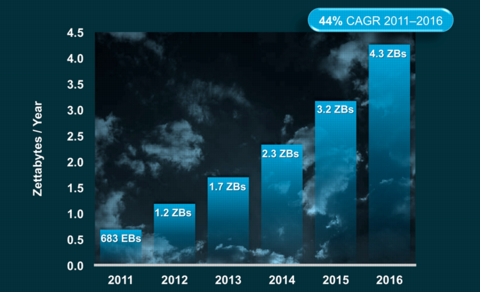Reuven Cohen| Forbes
Like it or not outages are part of life in today’s technology landscape. It seems hardly a day goes by without some kind of attack, outage or interruption. From hacking to power outages to regular old fashion hardware failures, the only certainty is at some point your systems will fail. While many in the industry use the build for failure mantra, many more risk adverse enterprises still need an extra bit of assurance.
Today the MSPAlliance in partnership with Lockton Affinity, the world’s largest privately owned independent insurance broker announced the availability of a new Cloud and Managed Services Insurance. The cyber insurance is aimed at service providers who require comprehensive protection.
TechTarget describes Cloud insurance as “an approach to risk management in which a promise of financial compensation is made for specific potential failures on the part of a cloud computing service provider. The insurance may be included as part of a service level agreement (SLA) with the provider or it may be purchase separately through a third-party insurance company who works with the provider.”
The MSPAlliance program includes limits of liability options, which range from $1,000,000 to $10,000,000 per claim and include deductibles from $2,500 to $10,000 per claim. The insurance is available to MSPAlliance members who have completed the Unified Certification Standard (UCS).
“These policies are uniquely created for cloud and managed service providers and can provide tremendous risk mitigation for both the provider and their customers.” said Bill Klein, director of Insurance Services for MSPAlliance.
MSPAlliance isn’t the first to offer so called Cloud insurance; up-start cloudinsure offers what it describes as a “Cloud Insurance platform designed to specifically address emerging liabilities within the Cloud environment. Through our innovative underwriting models and proprietary analytics, we bring insurance solutions that move at the pace of Cloud technology.”
A 2011 GigaOM article outlines some of the advantages of cloud centric insurance noting, “Cloud providers also stand to benefit from an insurance system. Not only will the availability of policies allay some cautious potential customers’ concerns about moving to the cloud, but insurance policies for providers will help offset the cost of dealing with an outage. Those service credits cost money, after all, as do steps taken to investigate and resolve outages and implement improvements to prevent future incidents.”
The MSPAlliance has provides a document outlining some of the advantages of cyber insurance writing, “Most businesses would agree that data or information is one of their most important assets. It is almost certainly worth many times more than the physical equipment that it is stored upon. Yet most business owners do not realise that a standard property policy would not respond in the event that this data is damaged or destroyed. A cyber policy can provide comprehensive cover for data restoration and rectification in the event of a loss no matter how it was caused and up to the full policy limits.
The real question is, will major cloud providers like Amazon Web Services, Google , Salesforce, Microsoft or even Facebook begin to offer improved SLA’s that actually remunerate customers who are affected by outages? It seems the current practice is to offer additional service credits, if anything is offered at all.
“These policies are uniquely created for cloud and managed service providers and can provide tremendous risk mitigation for both the provider and their customers.” said Bill Klein, director of Insurance Services for MSPAlliance.
MSPAlliance isn’t the first to offer so called Cloud insurance; up-start cloudinsure offers what it describes as a “Cloud Insurance platform designed to specifically address emerging liabilities within the Cloud environment. Through our innovative underwriting models and proprietary analytics, we bring insurance solutions that move at the pace of Cloud technology.”
A 2011 GigaOM article outlines some of the advantages of cloud centric insurance noting, “Cloud providers also stand to benefit from an insurance system. Not only will the availability of policies allay some cautious potential customers’ concerns about moving to the cloud, but insurance policies for providers will help offset the cost of dealing with an outage. Those service credits cost money, after all, as do steps taken to investigate and resolve outages and implement improvements to prevent future incidents.”
The MSPAlliance has provides a document outlining some of the advantages of cyber insurance writing, “Most businesses would agree that data or information is one of their most important assets. It is almost certainly worth many times more than the physical equipment that it is stored upon. Yet most business owners do not realise that a standard property policy would not respond in the event that this data is damaged or destroyed. A cyber policy can provide comprehensive cover for data restoration and rectification in the event of a loss no matter how it was caused and up to the full policy limits.
The real question is, will major cloud providers like Amazon Web Services, Google , Salesforce, Microsoft or even Facebook begin to offer improved SLA’s that actually remunerate customers who are affected by outages? It seems the current practice is to offer additional service credits, if anything is offered at all.


![High Performance Cloud Computing Networks [Infographic]](https://xcluesiv.com/blog/wp-content/uploads/2014/05/High-Performance-Cloud-Computing-Networks-Infographic.jpg)










